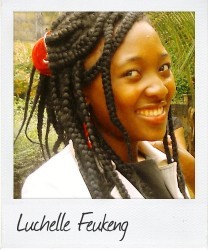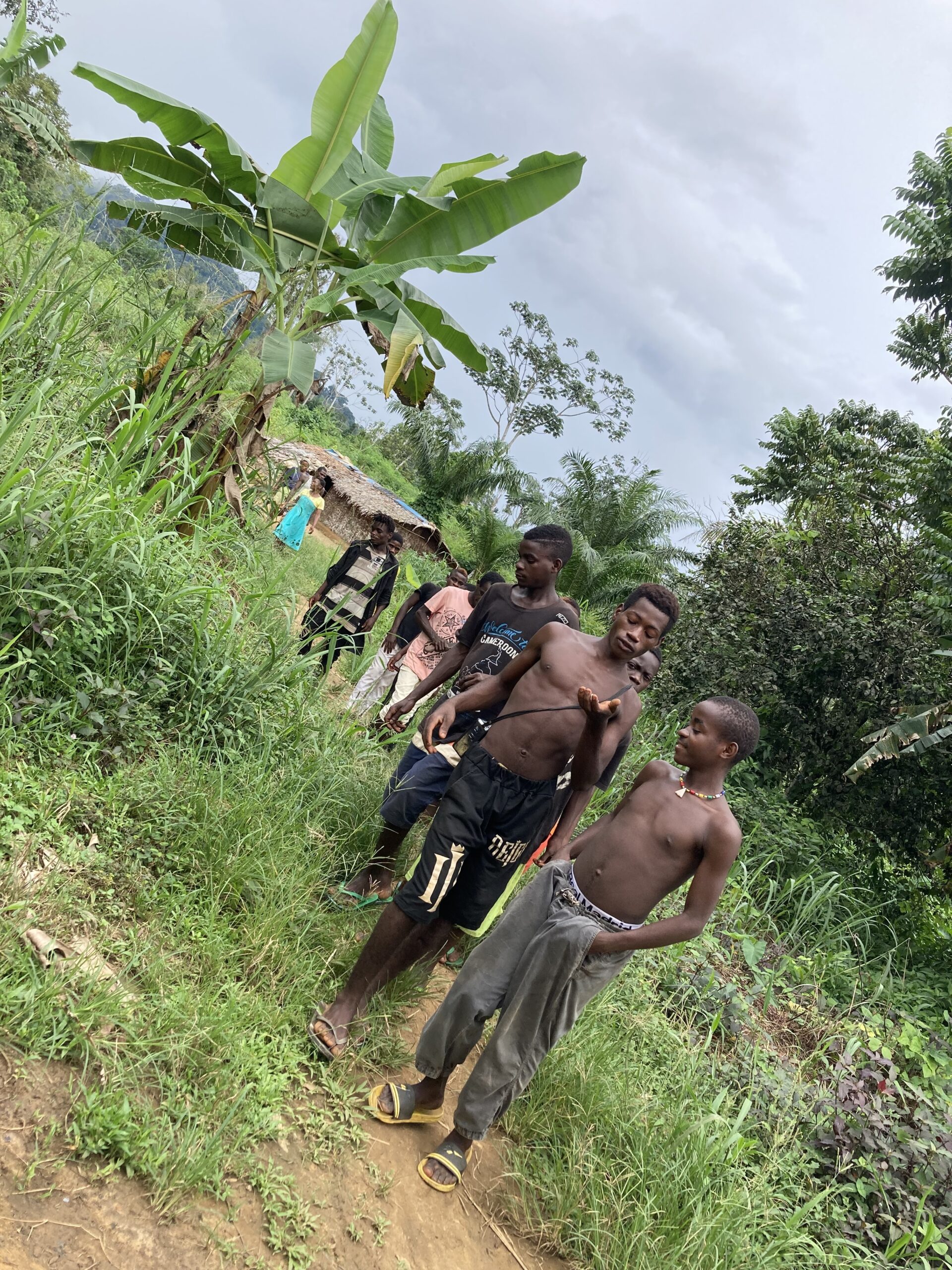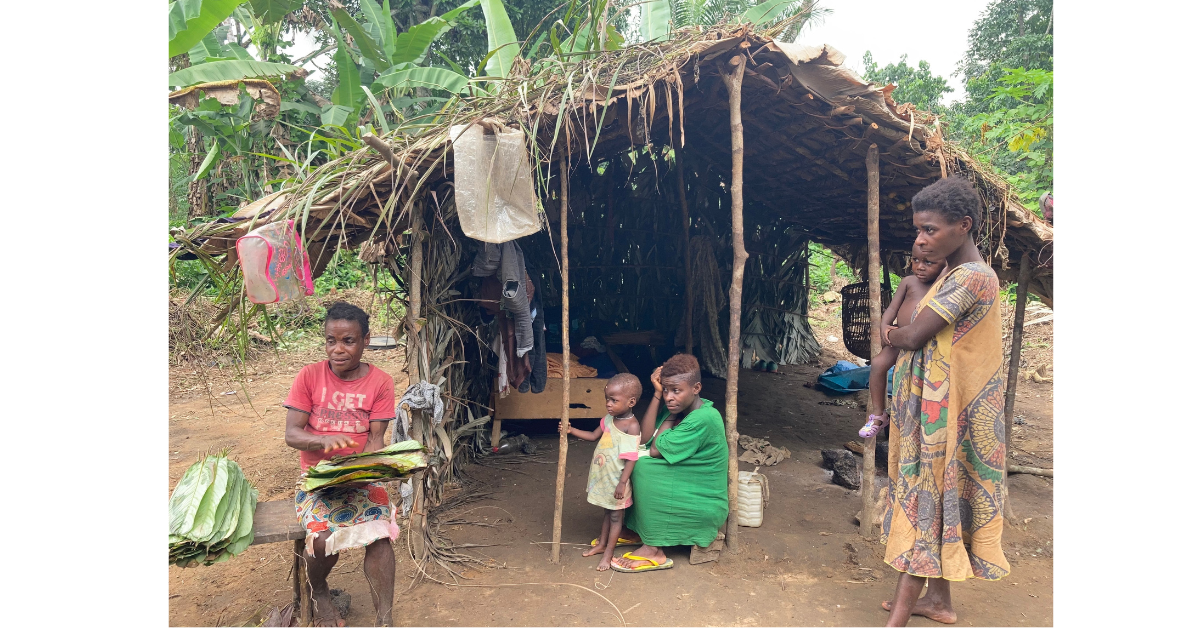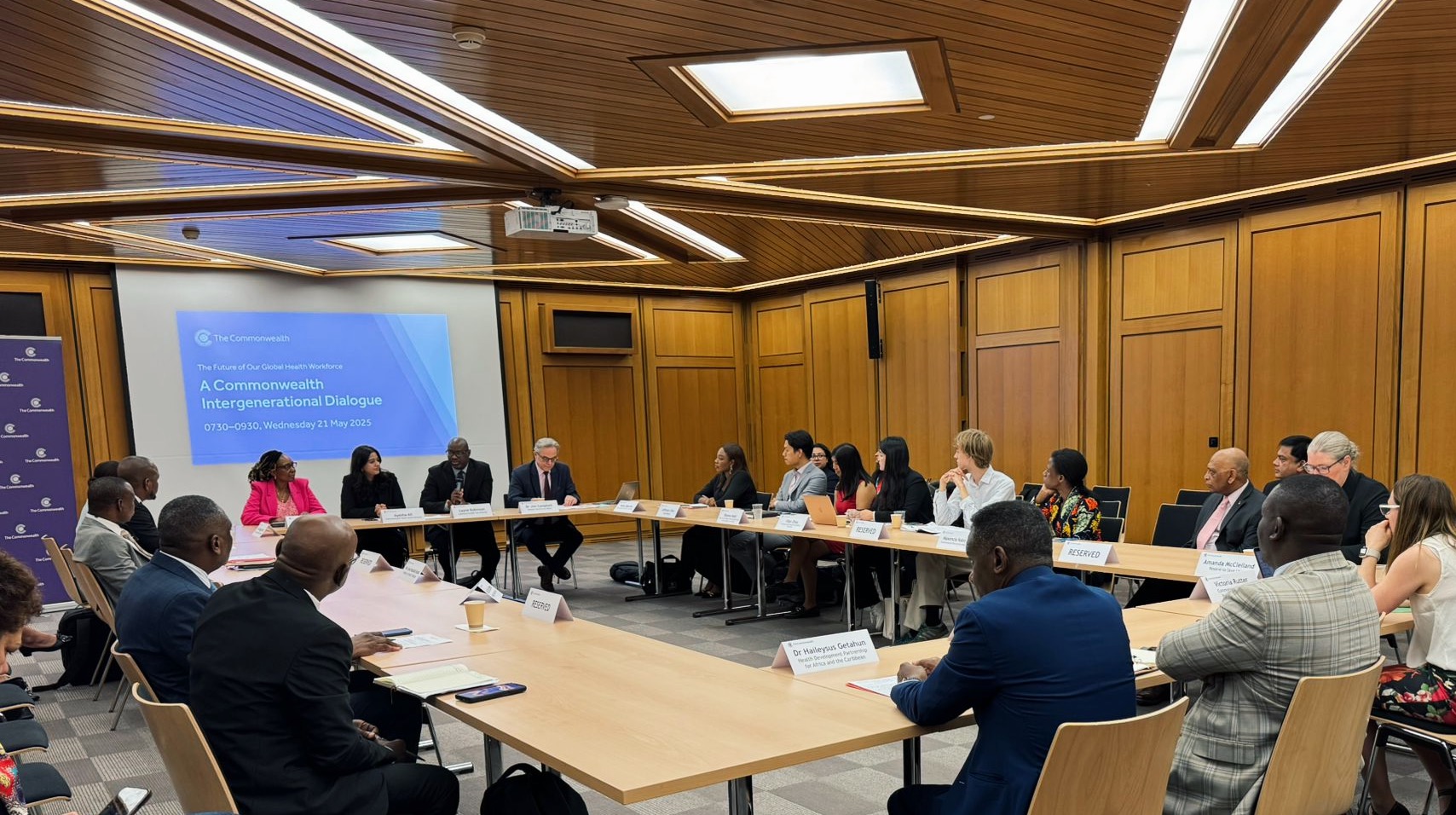Deforestation turns communities in Cameroon upside down
June 28
The destruction of forests in Cameroon is devastating indigenous populations like the Bagyeli pygmies who depend on the forest for food, shelter, medicine, and subsistence. Luchelle Feukeng, a 28-year-old Correspondent from Cameroon has been talking to members of this indigenous community in South Cameroon about how hard it is to survive when the very forest they depend on is being destroyed.
The sun is at its zenith that afternoon, as Monique carefully puts away the leaves cut in the forest. The young woman, in her early forties, tells us that she will sell these leaves in the coming days to buy rice to feed her small family; to obtain these leaves, her main means of subsistence, the Bagyeli pygmy had to travel hundreds of kilometres because they have become so rare.
“With my sisters, we leave Nyamabande village and walk to Campo. We take shortcuts through the forest and we can walk for two days in the hope of finding leaves.“A few years ago, the task was less arduous for the Bagyeli pygmy women, but since the agro-industries have settled around their villages, and razed the forest with them, everything has become different, painful.
Life has been turned upside down for the entire village because of the cutting down of trees by the agro-industries
Monique is not alone in her distress. Life has been turned upside down for the entire village because of the cutting down of trees by the agro-industries whose plantations are just a stone’s throw from the village.
Bagyeli pygmies are indigenous hunters and gatherers who, for centuries, have maintained their lives by making use of Cameroon’s forest. From food to healthcare supplies, the small village with no hospital – looks to the forest.
“This tree heals the woman, it is what we use for her prenatal care. We use the fruits of the Moabi tree to produce oil, which we use in our daily lives or sell to earn a little income. The wild mangoes also allow us to earn some money to send the children to school and to manage other needs. The forest here is all our wealth. I can go and kill my game, I buy a litre of oil for my wife who has given birth and some rice,” says the village chief.
Deforestation is however forcing the villagers to make a life outside of the forest. This is a tough change to make when their gods, for example, are in the forest, as are the remains of their ancestors. The villagers often go to commune with them there but with the forest being destroyed, even this connection has taken a serious hit.

This is a people facing not only a survival crisis but an identity crisis, too. They are worried about future generations. “Here are pygmy children, they can no longer hunt, because the practice is becoming rarer due to deforestation. What are we going to do, what is a pygmy without the forest?” exclaims Marie Thérèse Manzouer, a Bagyeli pygmy living in Kribi, in the South Cameroon region.
The young woman does not hide her sorrow for her brothers whose living conditions have become very difficult. “A few months ago, I saw the inhabitants of this village in a car, which had helped them to go to another village to find leaves to build their houses. But such opportunities don’t come every day, the rest of the time my brothers have to walk because there is no more Raphia around them, everything has been devastated.”
A compromised future
Agro-industries often promise jobs for villagers like these. Stéphane, for example, stopped going to school to work on a plantation near the village. Each month he receives about 50 euros as a salary. This is too little to meet his immediate needs. Stephane should be like boys his age, in a classroom.
As deforestation forces hunter-gatherers like the Bagyeli pygmy to walk for days in search of leaves for housing, Cameroon’s capital, Yaoundé where decisions are taken that affect the balance between conservation and development, may seem far away.
The results of these decisions on deforestation and climate change will affect Africa, the most vulnerable continent to the effects of climate change, but should concern people everywhere because ultimately all humanity will pay a heavy price for deforestation and climate change.
Photo Credits: Luchelle Feukeng
About the Correspondent: Hi, I am Luchelle Feukeng. Journalism is my passion. My dream is to become an international journalist. I like writing on everything that is related to ICT. I want to become the queen of the web through my writings. I think a computer and little effort are enough to change the world.






